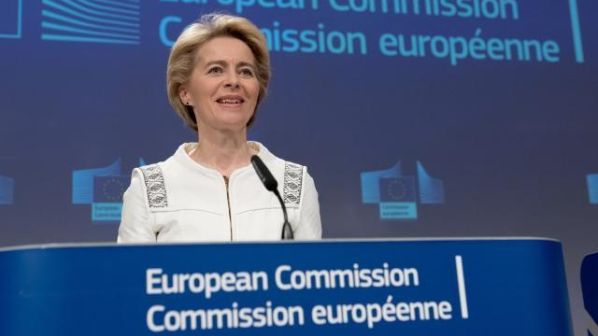The Green Deal, which has been described as the biggest overhaul of policy since the foundation of the modern EU, recognises rail as playing an important role in reducing greenhouse emissions by 50% by 2030 and 90% by 2050.
The plan calls for the shift of 75% of freight currently carried on road to rail and inland waterways.
Unife says rail plays an instrumental role in achieving the ambitious goals set out in the Green Deal and investing in energy efficient, low-emission rail transport appears to be pivotal to fulfilling the EC’s ambitions.
“Vision and ambition: this is what Europe needs, and this is what the Green Deal brings,” says Mr Philippe Citroën, Unife’s director general. “The European rail supply industry is ready to play its part in supporting president von der Leyen’s strategy by providing the technologies and innovation necessary to make transport ever-more sustainable and efficient.”
Step-change in investments
CER says shifting a part of inland freight away from road will require a step change in investments in rail infrastructure capacity, both to extend the network and to deploy digital traffic management systems such as ERTMS. CER calls on the European Parliament and the Member States to match the Commission’s ambitions.
CER adds that improved public transport is fundamental to addressing decarbonisation of cities. In addition, effective transport pricing and affordable railways are the only way forward to improve traffic patterns and foster sustainable modal choices of passengers and logistics operators. “The principles of ‘user pays’ and ‘polluter pays,’ which rail complies with better than any other motorised transport mode in Europe, are not to be given up in any circumstances,” CER says.
Nearly every aspect of the European economy comes under the plans and von der Leyen says the package is aimed at economic growth and increasing prosperity while showing how Europe can transform its way of living to become the world’s first carbon neutral continent.
“The European Green Deal is an initiative of unprecedented ambition compared with any other continent,” says Mr Libor Lochman, executive director of CER. “With it, the von der Leyen Commission offers a firm commitment to change pace on the path to full decarbonisation.”

